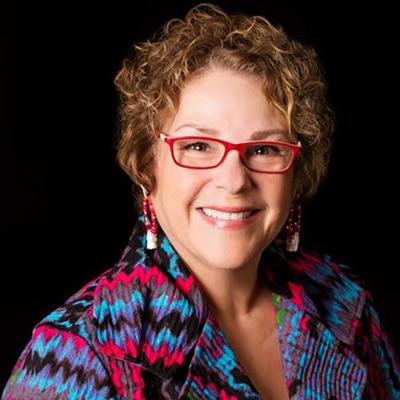The Extended Play-Based Developmental Assessment:A Structured & Manualized Assessment Approach Utilizing Play Therapy Principles and Techniques

Eliana Gil, Ph.D., RPT-S
Program Goals
This goal of this workshop is to provide participants with a structured and manualized assessment process that uses play therapy principles and techniques as the theoretical framework. This assessment tool has been developed over the last thirty years of working with children who have histories of trauma. Characteristically, these children do not volunteer information, may not be emotionally or cognitively capable of formulating accurate perceptions and communicating those perceptions, and may feel burned out on repeating their stories. The aim of this assessment process is to give children the time they need to become familiar with clinicians and therapy environments as well as find their own ways of processing difficult emotions at their own pace. Deeply reliant on the expressive arts, this assessment approach invites children to use play, art, and sand therapy techniques in order to externalize whatever is on their mind. Clinicians are encouraged to document thematic material in children’s play, listen and invite metaphors, and craft comments and questions that help children amplify important themes in their play. This assessment process is done utilizing both nondirective and directive play therapy strategies. Once assessments are completed, children and their families are given feedback and recommendations which often include ongoing play therapy, filial therapy, family play therapy, Theraplay, CBT, or other therapy formats and modalities.
Program Schedule
The daily schedule will consist of lecture, experiential work, videotaped case presentation and small group work to discuss client’s expressive work.
Day One
9:00 - 9:30 Introductions and wish list
9:30 - 10:45 Providing a rationale for the Extended Play-Based Developmental Assessment
10:45 - 11:00 Break
11:00 - 12:00 Learning to “read” play, art, and sand therapy strategies: Practice sessions within groups
12:00 - 1:00 Lunch
1:00 - 2:30 Continuation of learning specific assessment techniques and reading them Group work exercises and reporting of written summaries about what participants see in the child’s products
2:30 - 2:45 Break
2:45 - 4:00 The use of amplification questions; writing an assessment report; and determining what can be said/not said about children’s expressive work
4:30 – 5:30 Questions and answers and summary
Workshop Objectives
By the end of the workshop, participants will be able to:
- Explain the four elements of the EPBDA
- List four play-therapy activities utilized during the EPBDA
- Provide a rationale for the use of child-centered play therapy
- List two reasons why thematic material in the child’s play therapy must be chronicled
- List two ways in which the EPBDA can set the context for future treatment
- List two reasons why play therapy can override children’s hesitancy to talk
- List two specific take-away play therapy skills useful in advancing treatment goals
General Workshop Information
This workshop is designed to facilitate participant’s use of a child-friendly assessment model that values play therapy principles and techniques as a mechanism for both learning about the child and allowing the child to work through difficult experiences. This assessment model also allows children to development a comfortable relationship with the clinician and become familiar with the therapy setting.
References
Bulgarelli, D. & Bianquin, N., Caprino, F., Molina, P., & Ray-Kaeser, S. (2018). 3 Review of tools for play and play-based assessment. Doi: 10.1515/9783110610604-005.
Chirico, I., Andrei, F., Salvatori, P., Malaguti, I., & Trombini, Elena (2020). The Focal Play Therapy: An Empirical Study on the Parent-Therapist Alliance, Parent-Child Interactions and Parenting Stress in a Clinical Sample of children and their Parents. Int. J. Environ Res Public Health, Nov: 17(22): 8379. Doi: 10.3390/ijerph17228379.
Fiore, L. (2020). Assessment of young children: A collaborative approach, 2nd Ed., NY: Routledge.
Shelby, J. S., & Felix, E. D. (2006). Posttraumatic play therapy: The need for an integrated model of directive and non-directive approaches. In L. A. Reddy, T. M. Files-Hall, & C. E. Schaefer (Eds.), Empirically Based Play Interventionsfor Children (pp. 79 -104). Washington, DC: American Psychological Association.
O’Donnell, J. R. (2012). The Extended Play Based Developmental Assessment: Children Five to Nine Years Old with Trauma History. Unpublished Dissertations, Northwest University.
General Course Information
This course is limited to 20 participants and is designed to facilitate group discussion among play therapists and others regarding state-of-the art literature and practice regarding children’s sexual behavior problems, intake focused on safety and supervision, an assessment that utilizes play therapy activities, and developing goal-oriented and structured play and other expressive therapy interventions.
Clinical case discussions will adhere to HIPPA regulations regarding client confidentiality.
Target audience is Licensed Professional Counselors, MFTs, psychologists, social workers, play therapists and others who work with children.
Myriam Goldin, LCSW; RPT-S, is Director of Starbright Training Institute. Phone: 703-980-2886. Email: starbright.inst@outlook.com Web Page: starbrighttraininginstitute.com
Complaints and Appeals:
Complaints against an Approved Provider should first be filed in writing with the Approved Provider directly for resolution. If satisfaction is not obtained, APT’s Continuing Education Coordinator should be contacted in writing to achieve a final resolution.
Grievance Policy
Starbright Training Institute seeks to ensure equitable treatment of every person and to make every attempt to resolve grievances in a fair manner. Please submit a written grievance to: Myriam Goldin, LCSW; RPT-S, Director of Starbright Training Institute. Phone: 703-980-2886. Email: starbright.inst@outlook.com Web Page: starbrighttraininginstitute.com
Grievances would receive, to the best of our ability, corrective action in order to prevent further problems.
Accommodations for the Differently Abled
Starbright Training Institute’s training facilities are handicap accessible. Individuals needing special accommodations please contact the Director of Starbright Training Institute. See contact information above.
Course Instructor Contact Information
Name: Eliana Gil, Ph.D.
Website: www.gilinstitute.com
Email: elianagil@me.com
Phone: 202-257-2783